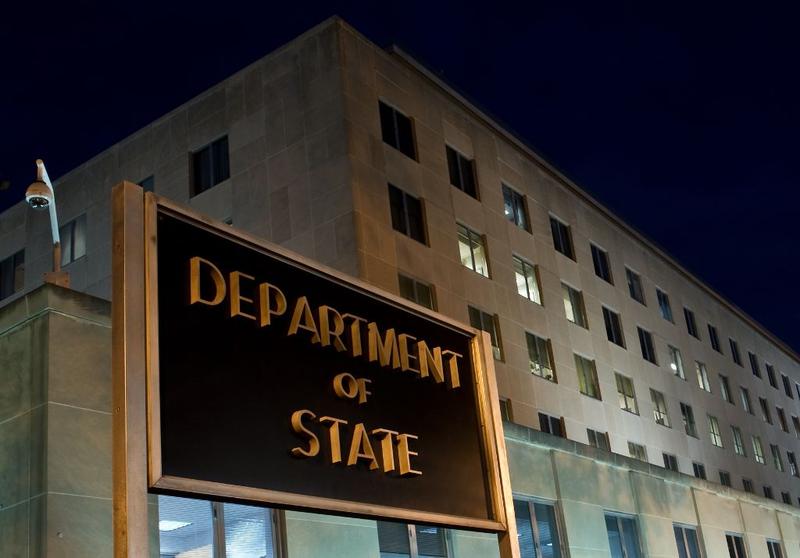JOHN HOCKENBERRY: Good morning.
BILL KELLER: Good morning.
HOCKENBERRY: ... Let me just ask you, are diplomatic cables, just on the face of it, an appropriate source or target of information for journalists trying to figure out what's going on?
KELLER: Well, they contain real information that I think readers and citizens will find interesting and illuminating as they try and figure out what they're getting.
There are limits to their utility - for one thing a fair amount of what's in these cables is stuff that we already knew. This flushes it out and provides some texture and drama but the underlying things we knew. Second of all, within the cables you see the limits of what we know. The story we published this morning on all the neighbors of North Korea trying to figure out what goes on in that country shows that even the Chinese, their closest ally, is clueless about what makes North Korea tick. Another thing is sometimes cables are just cables, a lot of us - and I include myself - are fascinated by this cable that went up in the state department telling diplomats that they should start gathering up credit card numbers and frequent flyer accounts of government officials that they encounter in their day-to-day routine. But does that mean that whenever a diplomat goes out for dinner at the house of some government official he's going to start poking around in the waste basket? I really doubt it. I think a lot of diplomats kind of rolled their eyes at that one.
HOCKENBERRY: And some of this stuff in here is a good idea. You know, it's almost like a suggestion box thing: you don't know what's policy and what's suggestion box.
KELLER: Exactly. And that's true of most of the raw material of journalism or history - you have to kind of pick through it and see what's consistent with what else you know and what actually makes sense.
HOCKENBERRY: All right, so listen to this response of Secretary of State Hillary Clinton who's not surprisingly outraged by everything that's gone on over the weekend.
HILLARY CLINTON [tape]: This disclosure is not just an attack on America's foreign policy interest; it is an attack on the international community.
HOCKENBERRY: Now of course she can say that - and there's certainly a strong argument to be made there - but if, for example - lets just do a thought experiment here - if someone had recorded an editorial meeting of the New York Times, for instance, and just published that out on the web, would you consider that an attack on the community of journalists or an attack on the way you do business at the New York Times, if all of the sudden that was made public?
KELLER: No, I'd probably consider it an embarrassment but not an attack. But I don't mean to dismiss Secretary Clinton's anger at all. Two things, first of all her anger is directed at Wikileaks, which posted the stuff. Let's be clear what the Times has done: We've written articles based on this material, what we've actually posted is the small number of cables and we've consulted with the state department and edited those very heavily to remove anything that we think could actually put lives at risk or jeopardize national security. Not that they approve of what we're doing, but the wrath is directed at Wikileaks.
HOCKENBERRY: But you've also changed the way your own foreign policy correspondents would be doing business, I mean, you often use sources from diplomatic sources who speak off the record or who speak anonymously about things, all of the sudden there's like a new channel for sourced diplomatic material which has a different degree of candor maybe than what your reporters are getting. It changes the way you're an international correspondent, it seems.
KELLER: It does, but only temporarily: This is a one-time window. It's quite extraordinary. It's amazing to repeat and I talk to colleagues that I sometimes feel this must be what its like to work at the National Security Agency's eavesdropping section. It's so strange to have this kind of intimate access to events. But this isn't going to happen again, is my bet. As far as we know all of this material, including the earlier leaks of military dispatches... I don't know this for a fact but what I've read the suspicion is that it all came from one disgruntled army analyst who is under arrest at the moment. So I don't think we're going to have regular access to this kind of diplomatic confidences.
HOCKENBERRY: Well, be careful what you candidly predict on national radio, Bill Keller, executive editor of the New York Times. Let me just say that this week we've seen an extraordinary portrait with the publication of David Rohde's book with his wife on the kinds of arrangements that newspaper editors have to make, agreements, tacit agreements you have to make with other journalistic organizations and the need to which you have to massage the truth to protect, in this case, the life of someone who is under the custody of the Taliban and also to make sure that the public's right to know is protected with these Wikileaks documents, it's an interesting sort of change in your role as executive editor.
KELLER: That's true. I mean, I guess I've ended up being a little bit of a diplomat myself and it's nothing that comes naturally to journalists, who tend to be loners and intensely competitive. It's like herding kittens to manage a newsroom of journalists. Sometimes it's in the interest of journalism or in the interest of the safety of our people to operate with our colleagues and competitors.
HOCKENBERRY: Who do you like better - journalist or diplomats - at this point Bill Keller?
KELLER: (laughs) I have friends in both camps but I guess I'll stick with my own.



